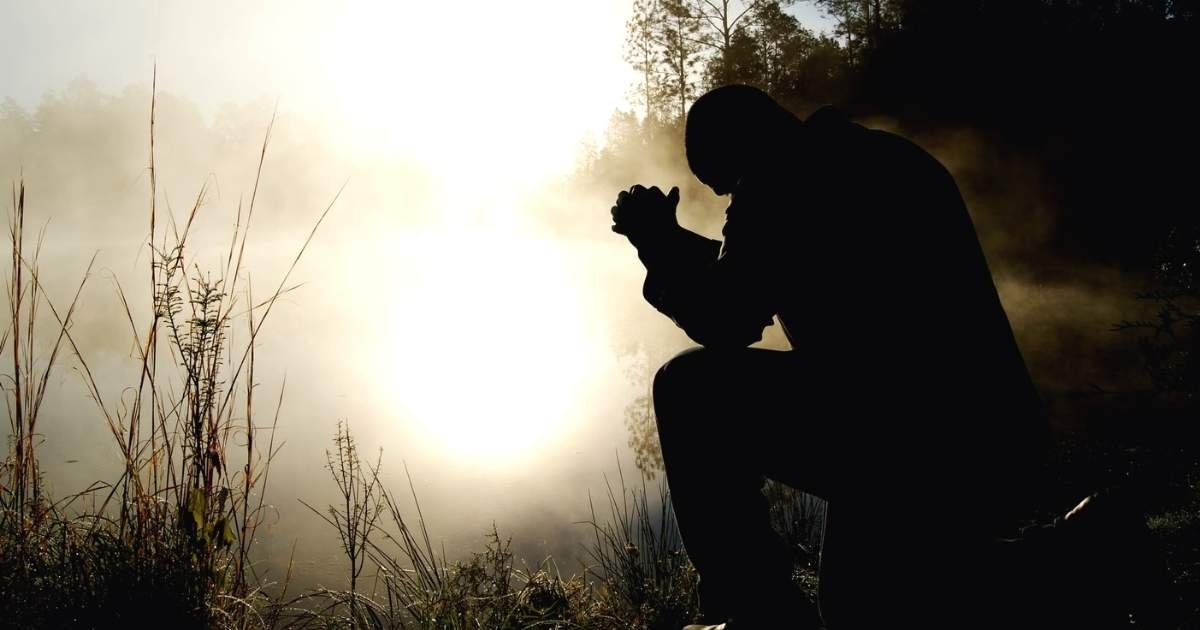Should Christians celebrate Halloween? As October 31 approaches each year, many believers struggle with this important question.
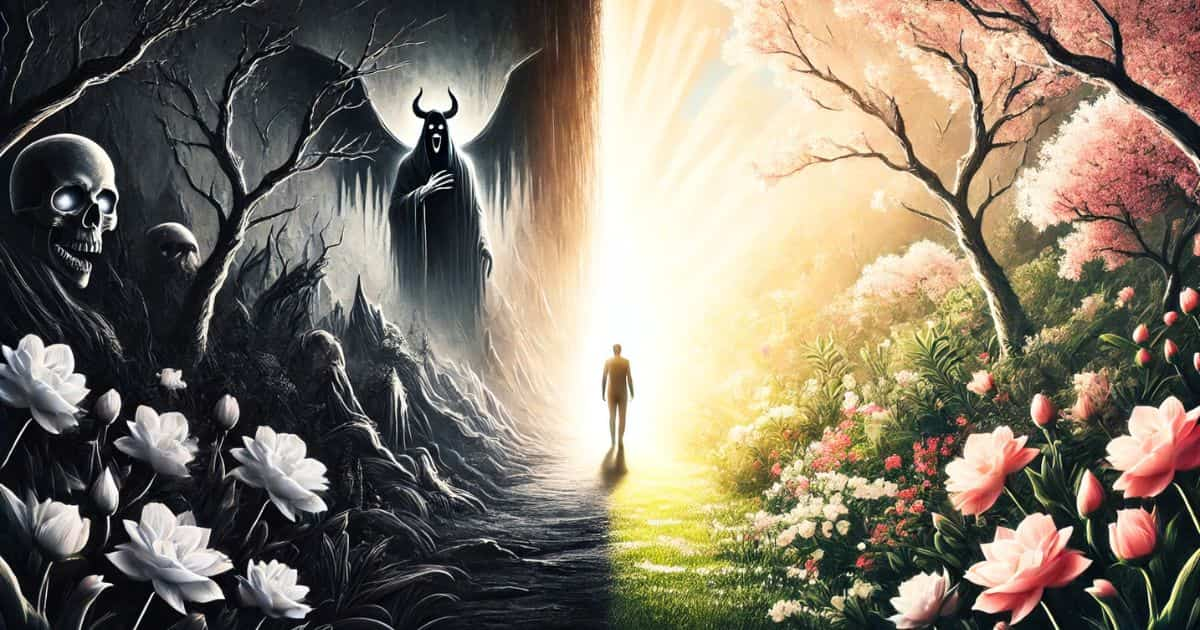
To make a sound biblical decision, we need to understand both the historical roots of Halloween and what the Bible teaches about participating in such celebrations.
Origins of Halloween
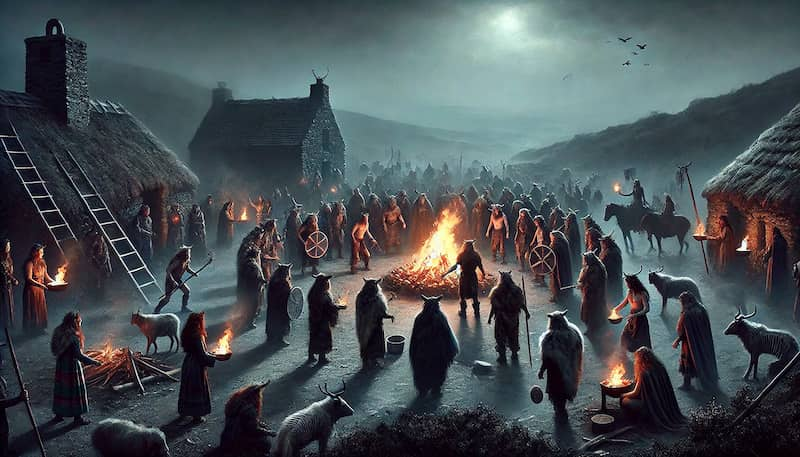
The story of Halloween begins over 2,000 years ago with an ancient Celtic festival called Samhain (pronounced “sow-in”). The Celts lived in what is now Ireland, Britain, and northern France. They marked November 1st as their new year, which signaled the end of summer and harvest time and the beginning of a cold, dark winter – a season they often associated with death.
The Celts believed something unique happened on the night before their new year. They thought the boundary between the world of the living and the dead became thin, allowing ghosts to return to earth. These weren’t friendly ghost stories – the Celts genuinely feared these spirits could damage their crops, cause trouble, or even possess the living.
During Samhain, Celtic priests called Druids performed special rituals. They built huge bonfires where people burned crops and animals as sacrifices to their gods. The Celts wore costumes, typically made from animal skins, and tried to tell each other’s fortunes. When the celebration was over, they lit their hearth fires from the sacred bonfire to protect them during the coming winter.
As Christianity spread through Celtic lands, the church tried to provide an alternative to this pagan festival. In 835 AD, Pope Gregory IV established All Saints’ Day on November 1st. The night before became known as “All Hallows’ Eve,” which eventually became “Halloween.” However, many of the old pagan practices continued, merely taking on new forms.
Now, let’s examine the 6 biblical reasons why Christians should not participate in Halloween celebrations:
1. God Explicitly Forbids Pagan Practices and Occult Involvement
In Deuteronomy 18:10-11, God speaks very clearly about practices associated with the supernatural realm: “There shall not be found among you anyone who makes his son or his daughter pass through the fire, or one who practices witchcraft, or a soothsayer, or one who interprets omens, or a sorcerer, or one who conjures spells, or a medium, or a spiritist, or one who calls up the dead.“
This isn’t just an Old Testament concept. The Apostle Paul reinforces this teaching in Ephesians 5:11, telling believers to “have no fellowship with the unfruitful works of darkness, but rather expose them.“
Modern Halloween celebrations might seem innocent, but they still incorporate many elements God specifically forbids. Consider the popularity of fortune-telling games at Halloween parties, the fascination with communicating with the dead through séances or ghost stories, and the widespread use of witch and sorcerer costumes. These aren’t just playful traditions – they represent real spiritual practices that God commands His people to avoid.
When we participate in Halloween, even in seemingly harmless ways, we risk normalizing these occult practices. Children especially may become confused about why certain activities are acceptable on Halloween but wrong at other times. God’s commands aren’t seasonal – they apply year-round.
2. We Are Called to Be Set Apart
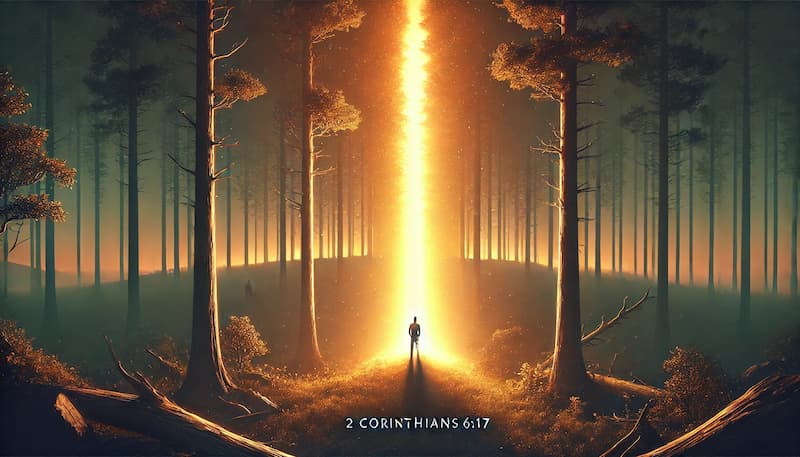
The Bible repeatedly emphasizes that God’s people should be distinct from the world around them. In 2 Corinthians 6:17, we read, “Come out from among them and be separate, says the Lord. Do not touch what is unclean, and I will receive you.“
This call to separation isn’t about being superior or isolating ourselves from society. Instead, it’s about living in a way that honors God and demonstrates His holiness to the world. Peter reminds us in 1 Peter 2:9 that we are “a chosen generation, a royal priesthood, a holy nation, His own special people.“
When we participate in Halloween celebrations, we blur the line between holy and unholy, sacred and secular. While the world sees nothing wrong with celebrating darkness, death, and the occult for one night, believers are called to a higher standard. Our lives should consistently reflect our identity as children of light.
This doesn’t mean we need to be harsh or judgmental toward those who celebrate Halloween. However, we should be willing to explain our convictions lovingly and stand firm in our commitment to holiness, even when it makes us different from our neighbors, colleagues, or even family members.
3. Halloween Glorifies Fear, Death, and Evil
Scripture teaches us that God’s character and purposes stand in direct opposition to what Halloween celebrates. In 2 Timothy 1:7, we read, “For God has not given us a spirit of fear, but of power and of love and of a sound mind.” Yet Halloween intentionally promotes fear through haunted houses, scary movies, and frightening costumes.
Jesus tells us in John 10:10, “The thief does not come except to steal, and to kill, and to destroy. I have come that they may have life, and that they may have it more abundantly.“
This verse presents a stark contrast between Satan’s purposes (death and destruction) and Christ’s purposes (life and abundance). Halloween, with its focus on death, ghosts, zombies, and gore, celebrates exactly what Jesus came to defeat.
Think about the decorations commonly used for Halloween: tombstones, skeletons, and scenes of violence. Consider the costumes that glorify evil characters, demons, and monsters. These aren’t just harmless fun – they represent a fascination with darkness that Christians should avoid.
We serve a God of life, light, and victory over death. Our celebrations should reflect these truths rather than glorify their opposites.
4. It Can Open Doors to Spiritual Influence
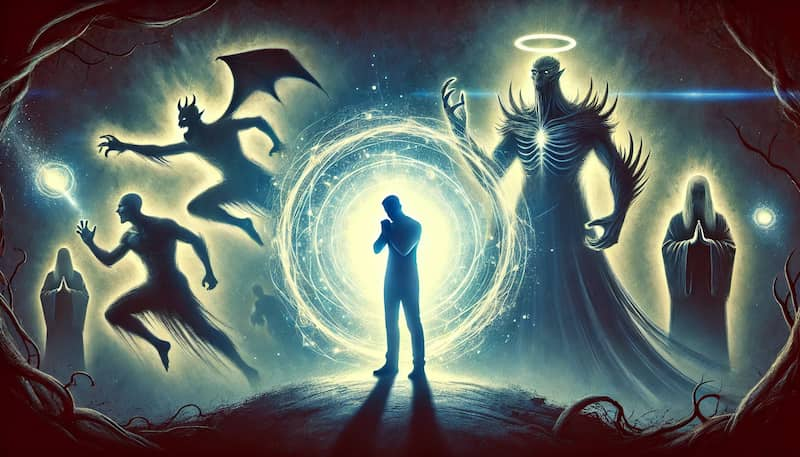
Many Christians underestimate the reality of spiritual warfare. The Bible clearly states in Ephesians 6:12, “For we do not wrestle against flesh and blood, but against principalities, against powers, against the rulers of the darkness of this age, against spiritual hosts of wickedness in the heavenly places.” This isn’t mere symbolism – it’s a description of actual spiritual conflict.
Halloween often treats these spiritual realities as entertaining fiction. People dress up as demons, play with Ouija boards, and tell ghost stories, not realizing they might be opening themselves to spiritual influences. In 1 Thessalonians 5:22, Scripture instructs us to “abstain from all appearance of evil.” This includes seemingly innocent activities that make light of serious spiritual matters.
Consider this: if a recovering alcoholic wouldn’t be wise to spend time in a bar “just for fun,” why should Christians expose themselves to practices that God has forbidden, even in play? The spiritual realm is real, and our choices about engaging with it matter. Many missionaries and spiritual leaders can testify to the dangerous consequences of treating the occult casually, even in culturally accepted ways.
5. Our Children Need Clear Spiritual Direction
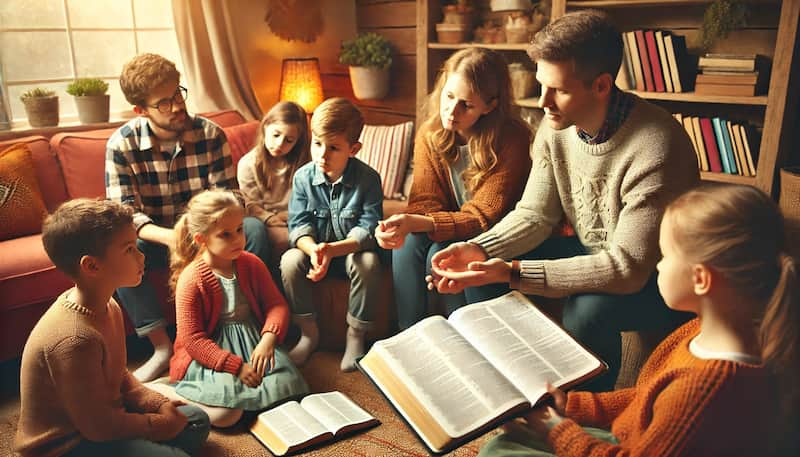
Parents carry a sacred responsibility to guide their children in God’s truth. Proverbs 22:6 reminds us to “train up a child in the way he should go, and when he is old he will not depart from it.” Deuteronomy 6:6-7 emphasizes this further, instructing parents to teach God’s commands diligently to their children.
When we allow our children to participate in Halloween, we often send mixed messages about spiritual truth. How do we explain that witchcraft and sorcery are wrong throughout the year, but it’s okay to dress up as a witch on Halloween? How do we teach them to trust God and not fear when we participate in activities designed to scare them?
Children need consistent examples of following Christ. When parents compromise biblical principles for the sake of cultural celebration, it can create confusion about other spiritual matters. Young minds might struggle to understand why some aspects of the supernatural realm are dangerous while others are treated as entertainment.
Many parents worry their children will feel left out if they don’t participate in Halloween. However, this presents an excellent opportunity to teach children about standing firm in their faith, even when it means being different from their peers. We can help them understand that following Jesus sometimes requires choosing God’s way over popular activities.
6. We Are Called to Walk in the Light

Ephesians 5:8 declares, “For you were once darkness, but now you are light in the Lord. Walk as children of light.” This verse doesn’t suggest we should sometimes walk in light and sometimes in darkness. It calls for a consistent lifestyle that reflects Christ’s light.
Halloween celebrates darkness – literally and spiritually. While some argue that modern Halloween celebrations have lost their spiritual significance, the imagery, themes, and activities still focus on darkness, fear, and death. As children of light, we’re called to “have no fellowship with the unfruitful works of darkness, but rather expose them” (Ephesians 5:11).
This means making conscious choices about what we celebrate and participate in. Just as we wouldn’t celebrate other pagan religious festivals, we should carefully consider whether Halloween participation aligns with our call to walk in the light.
Alternatives to Halloween for Christians
Instead of feeling restricted by not celebrating Halloween, Christians can create meaningful alternatives that honor God and build faith:
1. Harvest Celebrations
- Host fall festivals celebrating God’s provision
- Organize community gatherings with games and activities
- Focus on thanksgiving for God’s blessings
2. Family Ministry Opportunities
- Use the evening for family Bible study
- Create new traditions that honor God
- Serve others through community service projects
3. Educational Events
- Learn about saints and heroes of the faith
- Study biblical teachings about light and darkness
- Discuss spiritual warfare and God’s protection
While choosing not to celebrate Halloween might seem difficult in our culture, Scripture calls us to make choices based on God’s standards rather than cultural acceptance. As believers, we must remember that our decisions impact not only our own spiritual lives but also our witness to others and our children’s understanding of faith.
Romans 12:2 encourages us: “Do not be conformed to this world, but be transformed by the renewing of your mind, that you may prove what is that good and acceptable and perfect will of God.” This transformation includes carefully evaluating our participation in cultural celebrations through the lens of Scripture.
Instead of feeling deprived by not celebrating Halloween, we can embrace the opportunity to demonstrate our commitment to Christ and create meaningful alternatives that honor Him. Let’s choose celebrations that reflect our identity as children of light and our commitment to walking in God’s truth.
Remember, our goal isn’t to judge those who make different choices, but to faithfully follow God’s leading in our own lives. As we do this with grace and love, we can help others understand the importance of making choices that honor God in every aspect of life.
May we have the courage to stand firm in our convictions, the wisdom to explain our choices lovingly, and the creativity to develop alternatives that celebrate God’s goodness and light.
Please SHARE this with your friends and family.

